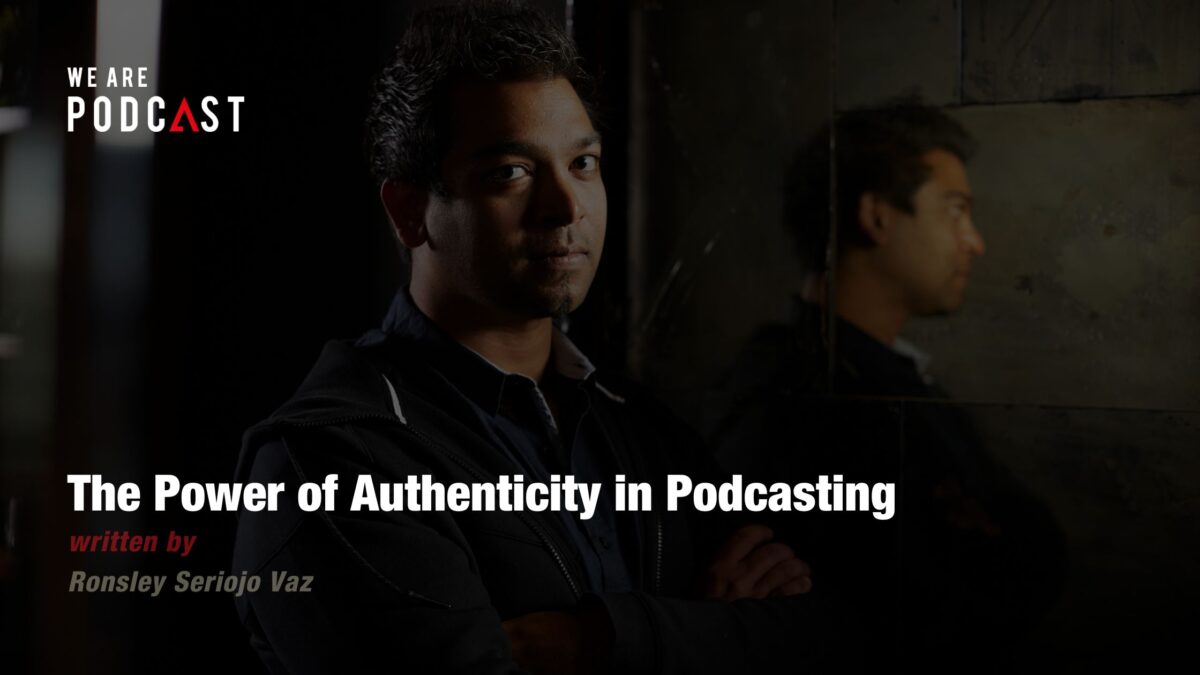Podcasting continues to grow in popularity as a powerful medium for sharing insights, stories, and expertise.
But with so many podcasts, how can you ensure yours stands out? One key to success is authenticity – creating content that is true to your voice and message.
What is authenticity in podcasting?
Authenticity in podcasting is the secret ingredient that makes a dish go from good to great. It’s like the spice that adds flavour to a dish and makes it unique. Authenticity sets a podcast apart from the rest and makes it stand out in a sea of content. It’s like the soul of the podcast that reflects the host’s personality and perspective. When a host is authentic, it’s like inviting the audience into their world and sharing a piece of themselves.
Authenticity is like the glue that holds a podcast together. When a host is authentic, it creates a connection with the audience that goes beyond the podcast’s content. It’s like a bridge that connects the host and the listeners. Authenticity is also like a compass that guides the host in creating content that resonates with their audience. It helps hosts to stay true to their voice and create content that reflects their unique perspective. In conclusion, authenticity is the key to creating a successful podcast that engages and resonates with the audience.
The importance of authenticity in building authority
Authenticity is the foundation of trust and connection between a podcast host and their audience. As a host, being authentic means being true to yourself and your message and sharing your unique perspective and personality with your listeners. When a host is authentic, they create a bond with their audience that goes beyond the podcast’s content. Listeners can sense when a host is genuine and can relate to them personally, leading to increased engagement, loyalty, and positive word-of-mouth.
Think of authenticity as the secret ingredient that makes a dish go from good to great. It sets a podcast apart from the rest and makes it stand out in a sea of content. Authenticity is the soul of the podcast that reflects the host’s personality and perspective. When a host is authentic, they invite the audience into their world and share a piece of themselves. As a result, the audience feels like they are part of the conversation, and this connection creates a sense of trust and authority between the host and the audience.
Repurposing content for different platforms
Repurposing content is a brilliant way to make the most out of your podcast episodes. Think of it like recycling – you’re taking something that already exists and giving it a new life in a different form. By modifying existing audio content to suit different platforms, such as social media, blogs, or YouTube, you can reach new audiences and drive traffic back to your podcast. This is a cost-effective way to maximize the reach of your podcast because you’re not creating new content from scratch – you’re simply adapting what you already have.
Repurposing content is like creating a delicious meal from leftovers. You have all the ingredients you need, but you’re using them in a different way to create something new and exciting. By repurposing your podcast content, you can reach new audiences on different platforms while providing value to your existing listeners. It’s a win-win situation. Plus, it saves you time and effort because you don’t have to create new content for each platform. You can take advantage of the content you already have and turn it into something that can be enjoyed by even more people.
Tips for creating valuable content in guest interviews
Guest interviews are a cornerstone of podcasting, providing a fantastic opportunity to add variety and value to your show. By bringing in a diverse range of guests, you can offer your audience fresh perspectives and insights they might not have encountered before. Whether it’s an industry expert, a successful entrepreneur, or a fascinating personality, every guest has a unique story to tell. As a host, it’s your job to prepare thoughtful questions to get your guest talking and bring out their best insights.
To create valuable content, it’s important to actively listen to your guest’s responses and look for opportunities to add your own perspective. This can involve sharing your own experiences or offering a different viewpoint on a particular topic. Doing so can create a dynamic and engaging conversation that will keep your listeners hooked from start to finish. So, whether you’re a seasoned podcaster or starting out, consider incorporating guest interviews into your show and see how much value they can add.
Building confidence in public speaking
Public speaking is an essential skill for podcasters, but it’s also a common fear that can hold many hosts back. However, like any skill, it can be improved through practice, feedback, and a focus on strengths. Think of podcasting as a form of public speaking, where the microphone is your stage, and your listeners are your audience. Like live performances, you want to captivate and keep your audience entertained and informed.
To build confidence in public speaking, podcast hosts should practice regularly, whether through recording and editing practice episodes or speaking in front of friends and family.
Seek feedback from trusted sources to identify areas of improvement and build on your strengths. Be bold and embrace your unique style and personality, which can set you apart from other podcasters and help you connect with your audience. Remember, the more you practice and get comfortable with public speaking, the easier it becomes and the more confident you will feel behind the mic.
Strategy for maintaining authenticity while growing a podcast
As a podcast grows, it can be tempting to shift focus towards what seems to be trendy rather than staying true to the original vision and values of the host. This can dilute the authenticity of the podcast and alienate loyal listeners. It’s essential to have a clear understanding of the podcast’s goals and purpose and stay on track with those goals.
Maintaining authenticity also involves engaging with listeners and understanding their needs and preferences. A successful podcast requires communication and a willingness to adapt and evolve like a relationship. Hosts should actively seek feedback from listeners and make adjustments as needed while also staying true to their own unique voice and perspective. By doing so, a podcast can continue to grow and evolve while remaining true to its authentic self.
Authenticity is a critical ingredient for success in podcasting. It helps build trust and authority with listeners.
It enables hosts to create content that is engaging, valuable, and reflective of their unique perspectives. Hosts can achieve a successful and authentic podcast that resonates with their audience by repurposing content, creating thoughtful guest interviews, building confidence in public speaking, and maintaining a clear strategy.

